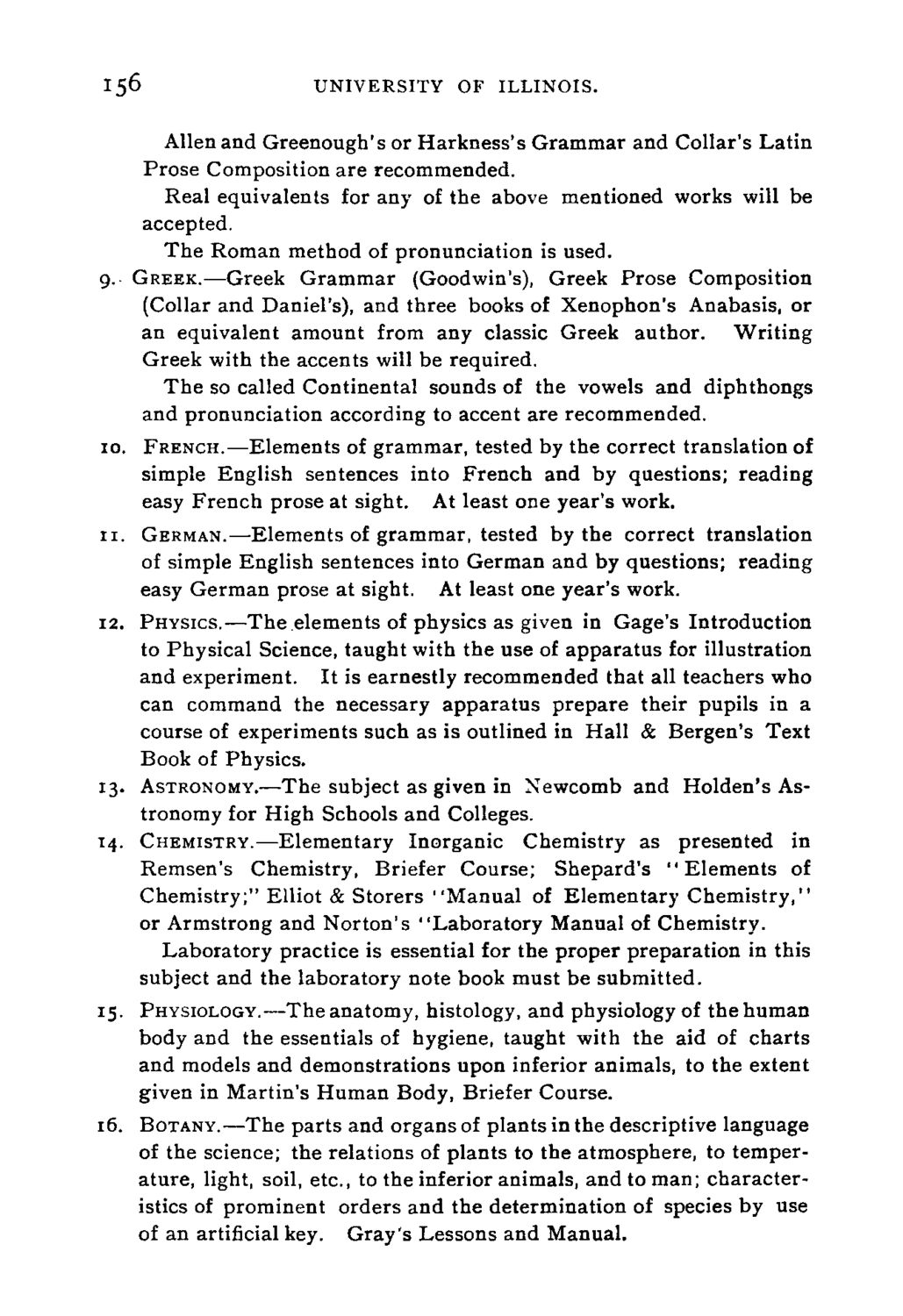| |
| |
Caption: Course Catalog - 1893-1894
This is a reduced-resolution page image for fast online browsing.

EXTRACTED TEXT FROM PAGE:
I56 UNIVERSITY OF ILLINOIS. Allen and Greenough's or Harkness's Grammar and Collar's Latin Prose Composition are recommended. Real equivalents for any o£ the above mentioned works will be accepted. The Roman method of pronunciation is used. 9. GREEK.—Greek Grammar (Goodwin's), Greek Prose Composition (Collar and Daniel's), and three books of Xenophon's Anabasis, or an equivalent amount from any classic Greek author. Writing Greek with the accents will be required. The so called Continental sounds of the vowels and diphthongs and pronunciation according to accent are recommended. 10. FRENCH.—Elements of grammar, tested by the correct translation of simple English sentences into French and by questions; reading easy French prose at sight. At least one year's work. n . GERMAN.—Elements of grammar, tested by the correct translation of simple English sentences into German and by questions; reading easy German prose at sight. At least one year's work. 12. PHYSICS.—The elements of physics as given in Gage's Introduction to Physical Science, taught with the use of apparatus for illustration and experiment. It is earnestly recommended that all teachers who can command the necessary apparatus prepare their pupils in a course of experiments such as is outlined in Hall & Bergen's Text Book of Physics. 13. ASTRONOMY.—The subject as given in Newcomb and Holden's Astronomy for High Schools and Colleges. 14. CHEMISTRY.—Elementary Inorganic Chemistry as presented in Remsen's Chemistry, Briefer Course; Shepard's "Elements of Chemistry;" Elliot & Storers "Manual of Elementary Chemistry," or Armstrong and Norton's "Laboratory Manual of Chemistry. Laboratory practice is essential for the proper preparation in this subject and the laboratory note book must be submitted. 15. PHYSIOLOGY.—The anatomy, histology, and physiology of thehuman body and the essentials of hygiene, taught with the aid of charts and models and demonstrations upon inferior animals, to the extent given in Martin's Human Body, Briefer Course. 16. BOTANY.—The parts and organs of plants in the descriptive language of the science; the relations of plants to the atmosphere, to temperature, light, soil, etc., to the inferior animals, and to man; characteristics of prominent orders and the determination of species by use of an artificial key. Gray's Lessons and Manual.
| |